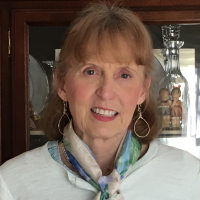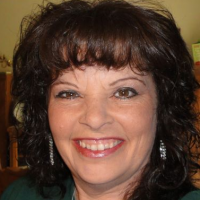Carry around a notebook or laptop etc for when you have your next great idea.
Write each day if you can.
Make a plan before you start typing... in my experience this helps me get started.
Add new ideas is as you go - always happens to me after a while of writing the 1st draft.
Start writing your novel from any point, the middle, a random chapter or the end part even!
Never try to write the finished product the first time. I edited the 'Tales of the Magic Piano' no less than twenty times. Write down your ideas initially. Try not to repeat verbs in consecutive sentences. Follow a story board. Be careful as you can with your grammar. Be as artistic as you like. Don't let the rules of grammar prohibit the free flow of artistic expression.
When your done writing your first book. Set it aside then write another one. Then when your done with that one then you can go back and start editing one of them. Then when your done editing that one, start writing something new. Then edit your last book you've written. This way you will always have something to "work on" Do this and you will never run out of "Work"
1. Always include a sliver of truth to fiction, and you have the secret ingredient of relatability.
2. Start writing. Don't over think it.
3. Be honest, even about your darkest emotions. Express it through a character, and you'll find an amazing release.
4. Use actions rather than explanations. Readers want to live the moment with your characters.
5. Edit until the cows come home, once you have that all valuable first draft.
When people ask me how to start their first book, I always say pick up a pen or turn on your laptop.
It may seem obvious to the others who have written and published. However, we must all start somewhere to accomplish our dream of being a writer. It doesn't matter if your writing is awful, incoherent or dishevelled. The fact you have written it down means you are on your way. Never give up. Keep writing. When I started my first book, "For the Love of Murder: A Miscarriage of Justice!" it took me a little over nine years to complete because I kept giving in to indecision and self-doubt. My second novel took me exactly twelve months to complete and will be available on Amazon this week. The links will be provided here—the moral of my advice. Never give up, and keep writing.
It's never too late to chase your dreams. I was 50 when I got my first book published, thanks to the encouragement of my family. That was 45 books ago!
Write from inspiration.
Don't isolate yourself from family.
When there's a writers block find events or something you've always wanted to do. It clears the mind.
Like studying for a test in college, never write beyond 8 hours in a given day. Writers burnout.
Let the writing come to you.
The first thing that an aspiring writer needs to know is identity;the second thing that a writer needs to know is the specific reality that gives birth to the elements of the equality:that is definition is general choice while discretion is unknown productivity and known discernment only imagines reality to acknowledged visible and invisible inspirational qualities. Therefore the writer must have a goal (1) to advance methodology in how utility is correlated. (2) to guide theology in rational interests. (3) to draw perspectives from facts; objectivity and meaning witnesses two confounding variables; (4) comfortable reflection, and (5) evident reporting: These are compassionate events that describe compassion as a marketing guild created to focus the guide in future written expeditions of art, noted crafts that predict the practice itself, which eliminates confirmation bias.
(1)When I am driving, I am in my most thoughtful and meditative state of mind. The voice in my head wants to be heard, and some of it is pure gold, some is garbage. I use a dictation app to capture my thoughts. I find that by taking out the process of typing, conjugating and editing my thoughts stay better on track.
(2)When I read books by others, I pay attention to how they develop characters, plots, etc. I remember what works well and what does not. From this practice, I hone my own skills regarding these elements.
(3)When writing, I do well in cool, quiet places. (4)When editing, I can be in a busy environment. I can hear music. (5)When I have 'writers block', I pause to sort M&Ms. I often have a bag of M&Ms on hand and I eat them by color; first all the reds, then the blues, yellows, and so on. The process of sorting often gets the words flowing before I run out of colors.
1. Listen at least as much as you write. Writing without listening to the people, elements and sensations around you is preaching. I listen to my world constantly, with all my senses and sensibilities. I find I don’t learn much when I’m doing all the talking.
2. Don’t get bogged down with rules or guidelines that may apply to others but not you. There’s no magic number of words or minutes you must write per day, no standard length a chapter or a book should be, no words you should never use. Trust your rhythms and instincts. Avoid absolutes like must, always, or never.
3. Reject sabotaging language. The lexicon of writing and publishing is fraught with negatives like rejection, writer’s block, false start. Reframe these energy drainers as tools. Rejection is a favor from a publisher who wasn’t going to do right by your work — a bullet dodged. Writer’s block is an invitation to take time to refill your creative well, consider directions previously unexplored. There’s no such thing as a false start, but there are warm-ups, practice, creative experimentation, freewriting. I frequently remind myself to not be my own biggest obstacle.
4. Dream in stages. All writing starts with a sentence. Sentences become paragraphs, paragraphs form scenes, scenes make up chapters, and the totality of the chapters renders a book. To miss the joy of creating beautiful sentences that then flow into paragraphs, and on to scenes, etc. is, to me, to miss the point of writing at all.
5. Don’t compartmentalize your writing. A wise mentor many years ago wrote these word to live by: “Expand your definition of what it means ‘to be writing’ if your definition doesn’t include daydreaming, false starts, walks in the woods, reading or watching a bird. You can be ‘working on a piece’ in many different ways.â€
[This is condensed from my interview with Authority magazine titled Five Things You Need to Know to Become a Great Author. Also available on my blog The Writer by Starlight.]
1. Find a place to write.
2. Set it up the way you want.
3. Keep it for yourself no matter what.
4. Try to write a little bit every day at least five days a week.
5. Read everything you can.
Eat a healthy meal whenever you have accrued 7 hours of writing. This law was created by Yahshua who was taught writing by Allah. Surah Al-Ma'idah - 110 [The Day] when AllÄh will say, "O Jesus, Son of Mary, remember My favor upon you and upon your mother when I supported you with the Pure Spirit [i.e., the angel Gabriel] and you spoke to the people in the cradle and in maturity; and [remember] when I taught you writing and wisdom and the Torah and the Gospel; and when you designed from clay [what was] like the form of a bird with My permission, then you breathed into it, and it became a bird with My permission; and you healed the blind [from birth] and the leper with My permission; and when you brought forth the dead with My permission; and when I restrained the Children of Israel from [killing] you when you came to them with clear proofs and those who disbelieved among them said, "This is not but obvious magic."
Set aside time to write every day and pick time that you are only focused on your writing.
Write all ideas down in a journal. Even if you think they aren't great ideas, you can turn them into great ideas to a new story. If you experience writer's block, put things aside and take time for yourself to just relax, regroup, and come back to it later.
Write about topics that you love and use your creative mind to make them great. I write my ending to the story before I write the whole book so that in my mind I know where the flow of the story needs to take me. I also choose a title to the book after the story is completed and try to match the title to a summary of what the book is most focused on.
I found that it is important to create your characters and keep notes on each of them so that it stays consistent throughout your book. I noticed I spelled the name differently in the book and did not notice that, and Grammarly is what I used wouldn't pick that up because technically it isn't spelled wrong. Proofread many times before submitting it for final. Happy writing everyone!
1. Write what you love
2. If you're able - write the genre which is popular - this method is not always certain.
3. Home work. Research your characters - their careers, their medical history, even their clothing and cars. - Readers pick up on what is fact and what is fiction when it comes to certain topics.
4. If you think you are finished your manuscript, put it aside for a couple of weeks then go back over it. You will pick up mistakes, typos and rewrite paragraphs. Or change chapters. Look at it with fresh eyes.
5. Bad reviews are wasted words. Most of the bad one-or-two-star reviews are trolls copying and pasting a standard scripted paragraph to make you look bad. Did they even buy your book or read it? Never take a bad review to heart. If it is a real review - what are the positives to it? Or maybe use it to your advantage in your social media posts. Turn it around and make a negative to a positive and create new sales
1. Have regular office hours dedicated to your literary career. Use those hours to write, research, market, grow your website, or even read other books in your genre. Just do something related to your writing during that time, preferably daily, even when you don't want to.
2. Ignore word count goals (unless they really do help motivate you). So many authors get so down on themselves because they didn't meet their word count goals. Hence why I think office hours are better because it focuses on progress not checking off tally marks that are not always achievable. So, even if you only have ten minutes during lunch, those are your hours, and all other snuck-in hours are bonus.
3. Give yourself permission to write garbage. Just write, write something, write some more. Don't be afraid of what is on the page. That's what revisions are for. First drafts are just about throwing up brain stuff and splattering it onto the page.
4. Keep a separate document (mine is called "potpourri") where you keep all the stuff you cut. Make sure to include chapter dividers in the body so you know where cut material came from. You never know when you will be able to reuse that material or might want to reinsert parts of it. Plus, "deleted scenes" make great content for newsletters.
5. Tried & true, so I repeat what has often been said: every scene must advance the story or the characters' story arc. If it doesn't do one of those things, be ruthless. You may love it, but it's like that bad ex- who strings you along, making you think it's good for you, when really that scene is just going to hurt you in the end. Cut and run. :)
















